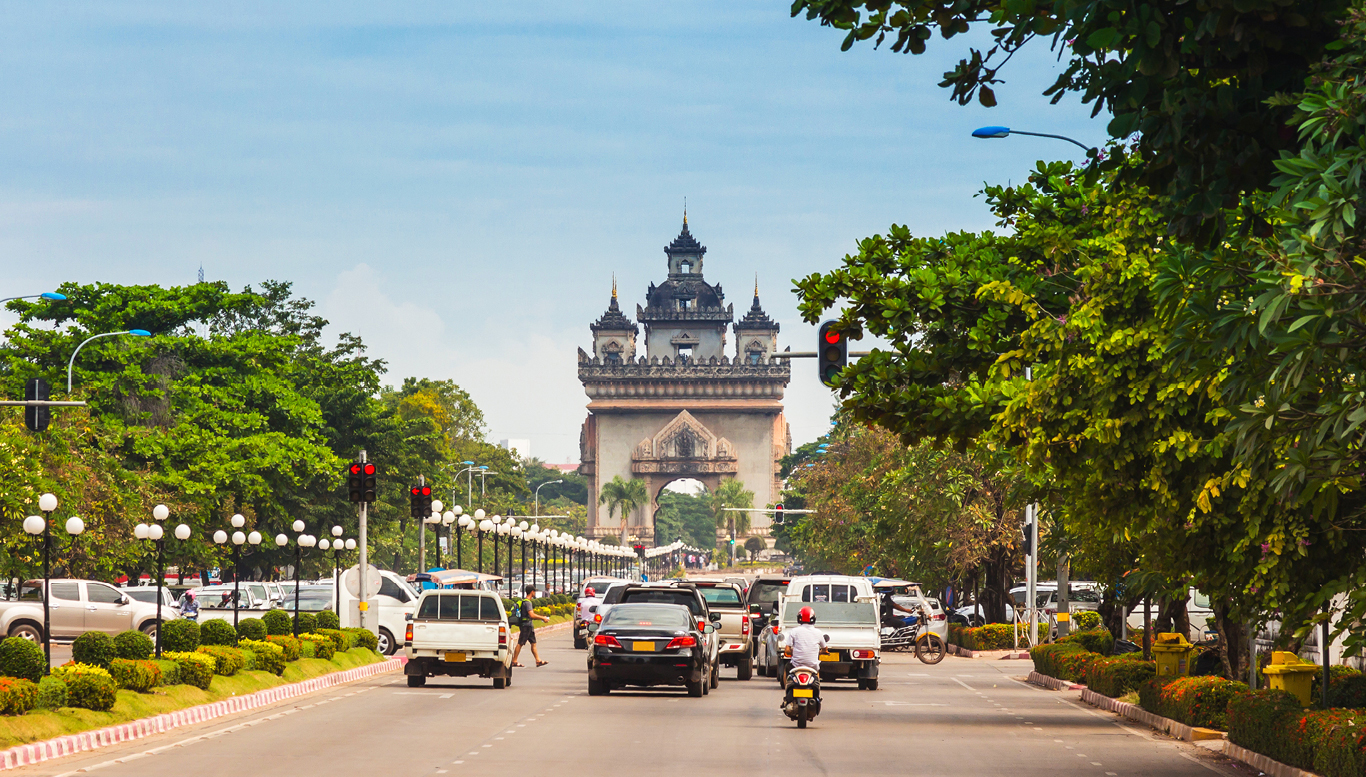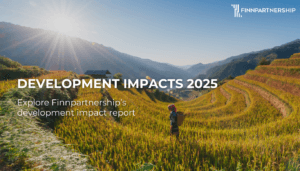Finns Promoting and Teaching Biogas Capture in Southeast Asia

TBEC delivers biogas projects in Thailand and is now expanding into neighbouring countries. The company has been mapping new business opportunities with support from Finnpartnership.
Thai Biogas Energy Company (TBEC) has attracted a lot of positive attention in Thailand with its projects to capture biogas from the wastewaters of the local starch industry and turn it into an energy source. The Finnish-origin company is now expanding into other countries in Southeast Asia. TBEC has received business partnership support from Finnpartnership for its new market ventures. “The support from Finnpartnership helped us get our first project in Laos,” says CEO Gustaf Godenhielm from TBEC.
Support from Finnpartnership has Long-Term Benefits
TBEC launched its first project in Laos in late 2012. Godenhielm believes that the support received from Finnpartnership will have long-term benefits for the company. “Now we have a reference facility we can use for marketing and presenting our solution to prospective clients. It will help us win bids for new projects in the country.” TBEC is currently preparing its second undertaking in Laos. The company also continues to look for partners in Cambodia and Vietnam. “We will probably get our first project in Cambodia within the next year.” According to Godenhielm, the support from Finnpartnership has played a crucial role in terms of project development in the neighbouring countries, since the company is prospecting for new markets on a relatively limited budget. “Other companies open new branches and spend a lot of money on expanding. We have progressed with a more frugal approach.”
Finnfund among Investors
The Private Energy Market Fund (PEMF), a Finnish capital investment fund specialising in energy projects, is TBEC’s main shareholder with a 75% stake. The other major shareholder is Al Tayyar Energy Ltd from the United Arab Emirates. Finnfund is one of the PEMF investors, and it has also funded TBEC directly with an unsecured loan.
TBEC currently has nine projects under way, most of which operate at cassava starch factories in Thailand. Godenhielm considers that the growth outlook is excellent. The company is preparing a number of further projects in Thailand. According to Godenhielm, rather than aiming to maximise the profit of individual projects, TBEC is focused on building its business and image in the long term. “The strategy is starting to work. We are known for high-quality projects, which in turn bring us new projects via our contacts and networks.”
A Biogas Plant on a Turnkey Basis
TBEC’s biogas plants are delivered on the BOOT (build, own, operate and transfer) basis, which means that TBEC funds and builds the biogas plant on the client’s behalf and operates it for a certain period. TBEC gets a return on the sale of biogas and electricity. At the end of the contract period, ownership of the plant is transferred to the client. TBEC’s investments include wastewater pools, gas capture systems and gas lines for production facilities. Factory boilers are converted to burn biogas instead of heavy furnace oil. The investments also include generators for producing electricity for production plants and the national grid.
Biogas Capture Benefits Everyone
Biogas capture is both environmentally sound and an economically viable project for all parties. Before, methane from factories’ wastewater was released into the atmosphere. “Instead of heavily polluting furnace oil, the plants can now use domestically produced renewable energy. When the process is well-managed and under control, biogas capture reduces atmospheric emissions as well as environmental risks associated with wastewater.” Godenhielm points out that TBEC’s projects promote the transfer of clean technology to developing countries. In Laos, for example, the company’s biogas project is the first of its kind. “The projects also create much-needed new jobs. Our first project in Laos is located close to the capital, Vientiane. The second project we have planned will be in the southern part of Laos, an even poorer area where the need for new employment opportunities is particularly acute.”
Share on social media


